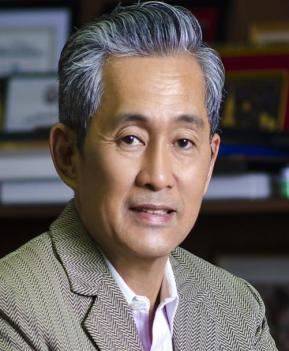TECH4GOOD

With the exponential rate at which technology is changing the way we work and the kind of work that we do, reskilling has become an imperative, not an option. Employees and employers alike need to take another look at how they can make themselves or their workforce ready to take on jobs that we do not even know today. For many, embracing a lifelong learning mindset is key to preparing for the changing workplace dynamics.
Wikipedia defines lifelong learning as the ongoing, voluntary, and self-motivated pursuit of knowledge for either personal or professional reasons. It can happen in any setting—formal or informal, at home or at work and takes place throughout an individual’s life, ‘from cradle to grave.
The results of the annual Global Workforce Hopes and Fears Survey by global consulting giant PwC, which covered 19,500 employees, align with the results of the 2023 Asia Pacific CEO Survey done by the same firm that shows that both the employees and the employers see the need to transform in order for them to survive. Employers and employees agree that reinvention is critical to business viability. Organizations realize that the only way for them to reinvent themselves is to ensure that their workers are fully engaged, motivated, eager, and ready for change. How do they go about reinventing themselves?
Although the PwC survey shows that 41 percent of the employees see AI as a tool that will increase productivity and efficiency at work, 22 percent of them say they lack confidence in their ability to acquire new AI-related skills and 16 percent even believe that AI will replace their roles.
The employers, on their own, may develop and roll out reskilling programs for their employees to ensure that they stay ready to take on new job roles but not all companies are able to afford such programs. And what about those workers who want to do it on their own or are considering career shifts? Lifelong learning is definitely one concept that they can embrace to stay relevant for future job shocks.
Developing the skill of lifelong learning requires a combination of mindset, strategies, and real-world approaches. First, one has to keep a growth mindset believing that their abilities can be developed through effort and self-learning. Staying curious by asking questions, exploring emerging work trends, news, and developments, and seeking information even outside one's immediate areas of expertise fuels the desire to learn and discover new things to remain relevant.
Learning effectiveness depends on one’s dedication, consistency, and practice. The format and platform should align with one’s learning style and preferences. Whether it is looking to acquire professional skills, explore creative hobbies, or learn about new subjects, there is likely a learning resource available to suit everyone’s needs.
Reading books, articles, and research papers on diverse subjects can enhance knowledge, expose one to different viewpoints, and stimulate critical thinking. Participating in workshops, seminars, webinars, and conferences relevant to one’s field and interest can provide opportunities for networking and exposure to new ideas.
I learned most of the new skills I have developed in the last two decades from online learning platforms. I strongly recommend that all individuals who want to learn new skills embrace learning platforms, courses, and resources. Sites like Coursera, LinkedIn Learning, edX, Udemy, and Khan Academy offer a wide range of micro-credentialed courses on various subjects. All of them offer free and paid courses which are delivered by partner universities and institutions worldwide and mostly facilitated by industry professionals. They can also check out numerous local sites offering online courses often in partnership with global brands.
Many individuals and organizations offer tutorials and instructional videos on YouTube for various topics. Listening to podcasts that cover educational and informative topics, can also be a great way to learn on the go. Let us not forget that traditional books, including ebooks, are still valuable resources for in-depth learning on a variety of topics. For those with the budget and available time, many universities and schools offer continuing education programs, evening classes, and workshops for the general public.
Learners will have to be mindful of a number of barriers that can prevent them from maximizing their lifelong learning development. They can include emotional barriers such as resistance to change, fear of failure, and lack of focus. People may also lack interest, and have low goal orientation or intrinsic motivation to pursue learning. Personal circumstances may also come into play like family responsibilities, and limited access to resources such as time, money, or technology tools. To overcome these barriers, learners must adopt a positive mindset, develop a clear purpose, and plan for their learning.
Lifelong learning is a gradual process. It is about consistently investing in one’s personal and professional development over time. More importantly, it is about preparing for the workplace challenges and opportunities of the future. ([email protected])
(The author is an executive member of the National Innovation Council, lead convenor of the Alliance for Technology Innovators for the Nation (ATIN), vice president of the Analytics and AI Association of the Philippines, and vice president, UP System Information Technology Foundation.)